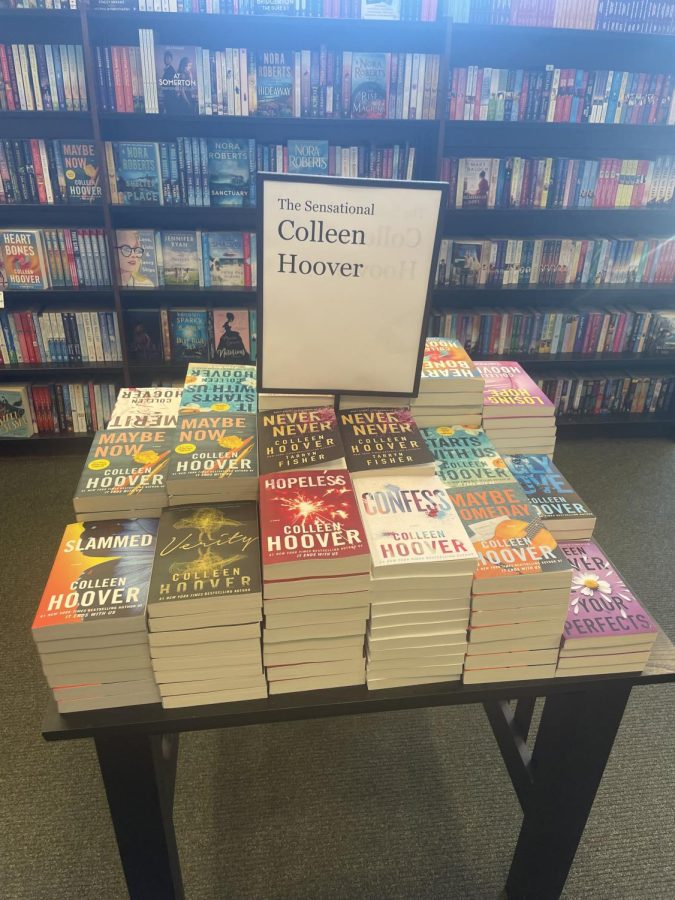Conformity book culture: The toxic side of BookTok
Photo by Annie Reilly
Colleen Hoover table at Barnes and Noble
On a platform like TikTok where diversity is often promoted, one would expect that would translate into BookTok. Unfortunately, this is not the case. Recommendation videos often preview books within the same genre, written by the same author, with the same type of content. This static cycle sends both new and experienced readers into a rabbit hole of copy-paste novels that lack representation of all walks of life.
This closed-minded club of readers keeps the same genres and authors in rotation. For example, the recent raving of author Colleen Hoover’s novels like It Ends With Us, Verity and Ugly Love exploded and were pictured in many TikToks dramatically titled “Books that had me screaming and crying until three AM” and “Books that destroyed me.” Hoover’s sudden popularity led to multiple new copy-paste novels and sequels for books that were not great to begin with. Her books are a good representation of the circulating novels depicting dark and difficult topics thinly veiled by a poor plot and explicit material.
Not only do these books fail to expand a reader’s palette, but they fail to promote critical thinking, especially when the plot is laid out like closed captions. Overly-detailed sentences set the scenes for a one-dimensional plot that gets mixed reviews from every reader. Toxic relationships and many poor representations of character self-respect are overlooked for the emotional response these books seem to evoke from readers.
BookTok is, in theory, supposed to be a space for new readers to find recommendations. Instead, if a reader doesn’t enjoy a book that everyone else loves, it could lead them to feel out of place and even self-conscious for not fitting into the niche. If BookTok instead recommended a diverse spread of genres, it would give readers the ability to hone in on their favorite styles, tropes and plots. It still isn’t common to find mainstream books where minority groups are well-represented, if they’re even represented at all. Promoting more books with more diverse characters would allow more readers to connect with writing.
This is not to suggest that BookTok should be canceled or that any book recommended is inadequate and should not be read. Promoting these novels is not the issue, but it should not be at the exclusion of presenting a variety of other books.

